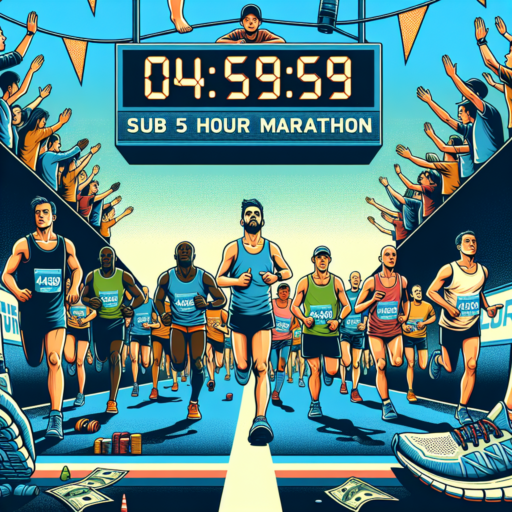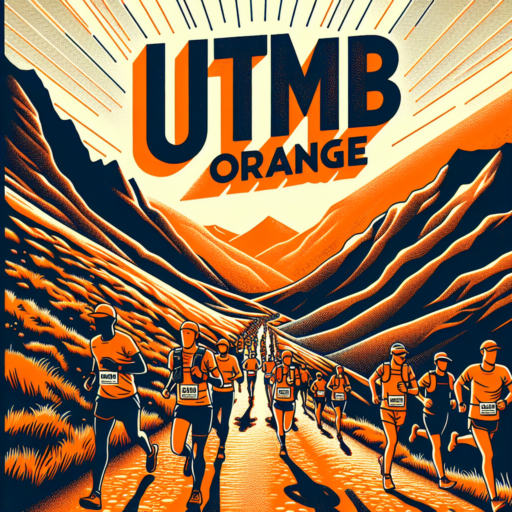What is a sub-5 hour marathon pace?
Achieving a sub-5 hour marathon is a common goal among many runners, denoting a significant milestone in distance running. The pace required to finish a marathon in under five hours directly translates to maintaining a speed that covers 26.2 miles within the specified time. When we break it down, the magic number for a sub-5 hour marathon pace falls into a precise range.
This pace is approximately 11 minutes and 27 seconds per mile. In metric terms, this equates to a pace of around 7 minutes and 7 seconds per kilometer. It’s a pace that balances between endurance and speed, requiring runners to maintain a consistent effort throughout the entire distance of the marathon. This pacing strategy is crucial for runners aiming to break the five-hour barrier, as it demands consistent energy management without significant fluctuations in speed.
To approach a marathon with the goal of finishing in under five hours, runners often incorporate different training techniques focusing on endurance, speed work, and pace management. This includes long runs at a target pace, tempo runs, and perhaps incorporating some hill work to build strength. Achieving and maintaining this specific marathon pace involves a combination of physical preparation, mental discipline, and strategic planning on race day.
How to get a sub-5 hour marathon?
Achieving a sub-5 hour marathon is a notable goal that many runners set their sights on. This target is ambitious yet wholly attainable with the right approach and dedication. The key to success lies in a combination of consistent training, strategic planning, and optimizing recovery. By focusing on these elements, runners can significantly improve their chances of finishing a marathon in less than 5 hours.
Develop a Consistent Training Plan
Consistency is the foundation of any successful marathon training program. Start by building a base of mileage before gradually incorporating speed work, long runs, and tempo runs into your routine. It’s crucial to increase your mileage and intensity progressively to avoid injury. Employing a mix of training methods not only enhances overall endurance but also prepares the body for the mental and physical demands of a marathon. Remember, consistency trumps intensity when aiming for a sub-5 finish.
Strategize Your Race Day
Strategic planning for race day is as important as the training itself. This includes everything from pacing strategy, nutrition, hydration, to gear selection. Break down the race into smaller, more manageable segments and set mini-goals for each. A well-thought-out pacing strategy will prevent you from starting too fast and burning out early. Additionally, experimenting with nutrition and hydration during training will help you identify what works best for your body, enabling you to optimize your performance on race day.
Optimize Recovery
Recovery is an often overlooked yet critical component of training for a sub-5 hour marathon. Integrating rest days, proper nutrition, and sleep into your training regimen enhances muscle recovery and rebuilds strength. Additionally, incorporating activities such as stretching, foam rolling, and cross-training can help prevent injuries and improve overall physical condition. By prioritizing recovery, you ensure that each training session builds effectively towards your sub-5 hour goal.
How do you fuel a 5 hour marathon?
Fueling correctly for a 5-hour marathon requires a strategic blend of carbohydrates, hydration, and timing to ensure you maintain your energy and hydration levels throughout the race. Understanding the biochemistry of your body and the demands of a marathon is vital in crafting a personalized nutrition strategy.
Carbohydrate Loading
Carbohydrate loading in the days leading up to the marathon is a tried and tested method to maximize the storage of glycogen in your muscles. Start increasing your carbohydrate intake about 3 to 4 days before the marathon. Meals should be rich in complex carbohydrates like whole grains, fruits, and vegetables, which provide a steady release of energy during the long run.
Hydration Strategy
Dehydration can significantly impair your performance and health during a marathon. Begin hydrating several days before the event and aim to drink 5-7 ml/kg of body weight of water or a sports drink every hour during the race. This will help maintain electrolyte balance and prevent fatigue.
During the Marathon
During the race, continue to focus on carbohydrates and hydration. Consuming 30-60 grams of carbohydrates per hour can be achieved through energy gels, chews, or sports drinks. Pair these with water or an electrolyte solution to enhance carbohydrate absorption. The key is to consume these at regular intervals to maintain energy levels without overwhelming your digestive system.
No se han encontrado productos.
What does a sub 4 hour marathon mean?
Completing a marathon, a race that spans 26.2 miles or 42.195 kilometers, is an impressive accomplishment in its own right. However, when runners speak of a sub 4 hour marathon, they’re referring to a specific time goal that has become a significant milestone for many athletes. This objective, to finish the marathon in less than four hours, is more than just a numerical target; it symbolizes a dedicated and serious approach to long-distance running.
A sub 4 hour marathon requires maintaining an average pace of approximately 9 minutes and 9 seconds per mile, or about 5 minutes and 41 seconds per kilometer. Achieving this pace demands not only rigorous physical training but also strategic planning and pacing throughout the race. Runners need to balance their energy reserves, ensuring they’re capable of maintaining a consistent speed without burning out too early.
Furthermore, achieving a sub 4 hour marathon often involves a detailed understanding of the course, adapting to potential environmental conditions such as weather, and mastering the mental fortitude to push through the inevitable challenges that arise during such a long-distance run. It is a benchmark that distinguishes the novice from the more seasoned runners, embodying a blend of athleticism, strategy, and perseverance.




